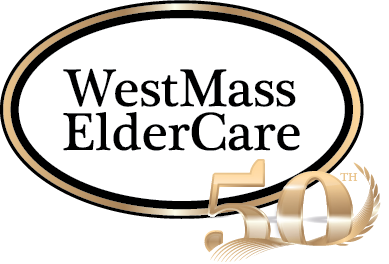October is Mental Illness Awareness Month. Mental illness remains a topic shrouded in misunderstanding and stigma despite significant advancements in medical science and increased awareness. These misconceptions not only perpetuate stigma but also deter individuals from seeking the help they need. Dispelling these myths is crucial to fostering a more inclusive and supportive society. Let’s explore some common myths and provide accurate information to counter them.
Myth 1: Mental Illnesses Are Rare
Fact: Mental illnesses are common. According to the World Health Organization (WHO), one in four people in the world will be affected by mental or neurological disorders at some point in their lives. In the United States, nearly one in five adults lives with a mental illness. Mental health issues can affect anyone, regardless of age, gender, race, or socioeconomic status.
Myth 2: Mental Illness Is a Sign of Weakness
Fact: Mental illnesses are medical conditions, not character flaws. Just as diabetes or heart disease are not signs of weakness, neither are depression, anxiety, or any other mental health conditions. They are caused by a complex interplay of genetic, biological, environmental, and psychological factors. Seeking help for a mental health issue is a sign of strength and self-awareness, not weakness.
Myth 3: People with Mental Illnesses Are Violent and Unpredictable
Fact: The majority of people with mental illnesses are not violent. In fact, they are more likely to be victims of violence than perpetrators. The notion that mental illness leads to violence is a harmful stereotype perpetuated by sensationalist media portrayals. While certain conditions, if left untreated, can lead to behaviors that are concerning, most individuals with mental health issues lead productive and peaceful lives.
Myth 4: Mental Illnesses Are Permanent
Fact: Many mental health conditions can be effectively managed or treated. With appropriate treatment, which may include medication, therapy, lifestyle changes, and support, many people recover fully or manage their symptoms to lead fulfilling lives. Mental health is a spectrum, and people can move towards better mental health with the right interventions and support.
Myth 5: Therapy and Counseling Are Only for “Crazy” People
Fact: Therapy and counseling are beneficial for anyone facing life challenges, stress, or emotional difficulties—not just those with diagnosed mental illnesses. Everyone can benefit from having a safe space to talk through their feelings, gain insights, and learn coping strategies. Seeking therapy is a proactive step towards better mental health and well-being.
Myth 6: Children Don’t Experience Mental Health Problems
Fact: Children and adolescents can and do experience mental health issues. Conditions such as anxiety, depression, ADHD, and conduct disorders can manifest in young people. Early intervention is crucial in helping children develop healthy coping mechanisms and preventing long-term consequences.
Myth 7: Medication Is the Only Solution for Mental Illness
Fact: While medication can be an important part of treatment for many mental health conditions, it is not the only solution. A comprehensive treatment plan often includes therapy, lifestyle changes (such as diet and exercise), stress management techniques, and social support. Everyone’s needs are different, and treatment plans should be tailored to their specific circumstances.
Myth 8: People with Mental Illnesses Can Just “Snap Out of It”
Fact: Mental illnesses are not simply a matter of willpower. Telling someone to “snap out of it” or “cheer up” is not only unhelpful but also dismissive of their struggles. Recovery from a mental illness often requires professional treatment, support, and time. Encouragement, understanding, and support are far more effective than oversimplified advice.
Myth 9: Older Adults Don’t Experience Mental Health Problems
Fact: Mental health issues can affect older adults just as they do younger people. Unfortunately, this age group often faces additional challenges, such as isolation, loss of loved ones, and health issues, which can contribute to mental health problems. It’s a common misconception that depression, anxiety, or cognitive decline are just normal parts of aging. In reality, older adults can and do benefit from mental health treatments.
Promoting Older Adult Mental Health
To support the mental health of older adults, WestMass ElderCare’s Behavioral Health Older Adult Program (BHOAP) is a valuable resource. This program offers specialized support for older adults dealing with mental health challenges, providing tailored interventions that address the unique needs of this population. By promoting programs like BHOAP, we can help ensure that older adults receive the care and attention they deserve, reducing stigma and promoting wellness. If you or a loved one is experiencing mental health issues, don’t hesitate to reach out to WestMass ElderCare’s InnerWell (formerly Elder Mental Health Outreach) program for assistance and guidance. Call WestMass ElderCare at 413.53839020 or email info@wmeldercare.org.
How to Combat Stigma and Support Mental Health
-
-
- Educate Yourself and Others: Understanding the facts about mental illness and sharing this knowledge can help combat stigma and misinformation.
-
- Show Compassion: Be supportive and empathetic towards those experiencing mental health challenges. Listen without judgment and offer help where possible.
-
- Advocate for Mental Health: Support policies and initiatives that promote mental health awareness and provide resources for those in need.
-
- Normalize Conversations: Talk openly about mental health in your community, workplace, and social circles to help normalize these discussions and reduce stigma.
-
- Know the Number: Familiarize yourself with the 988 Suicide and Crisis Hotline, a valuable resource for immediate support in mental health crises. Share this number with others to ensure they know where to turn for help.
Conclusion
Dispelling myths about mental illness is essential for creating a society where everyone feels safe seeking help and receiving the support they need. By spreading accurate information and showing compassion, we can work towards a future where mental health is understood, respected, and prioritized.


